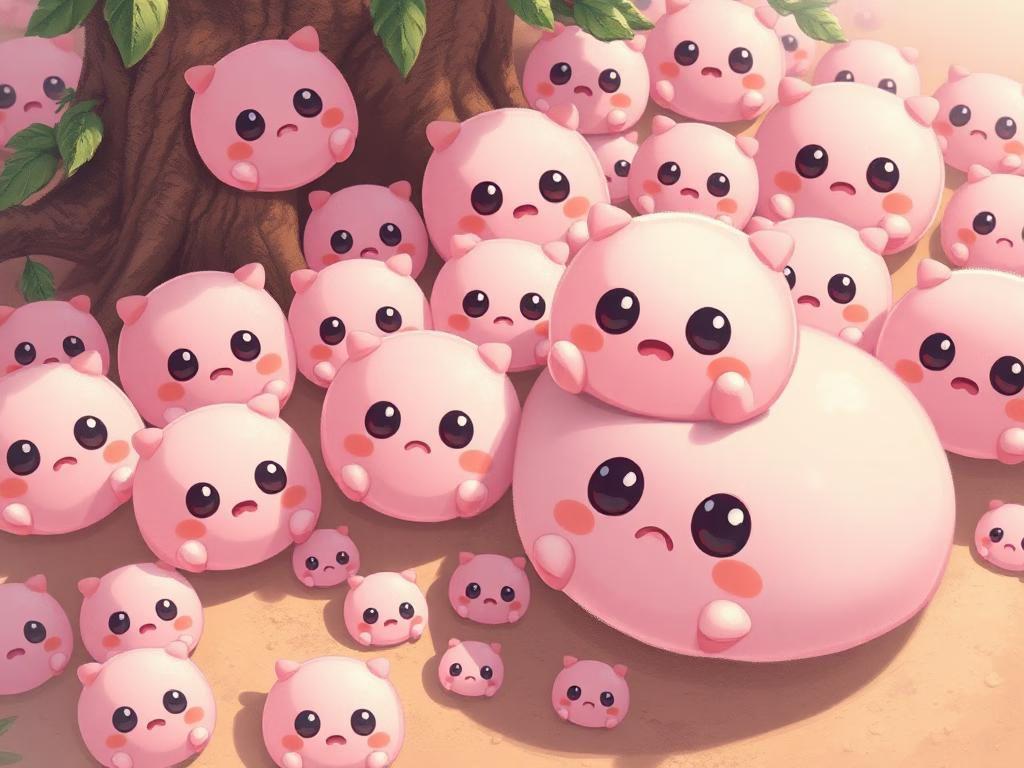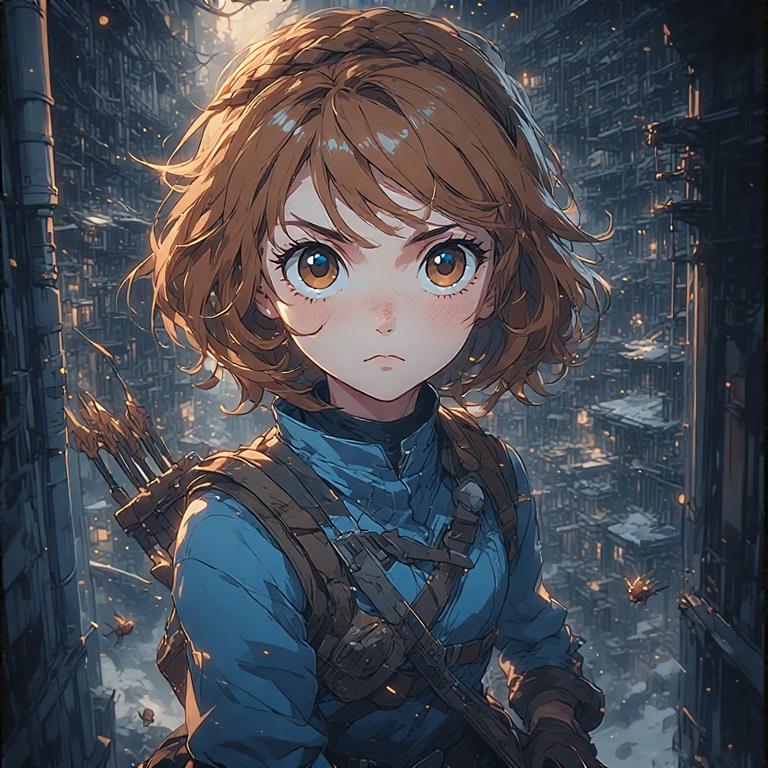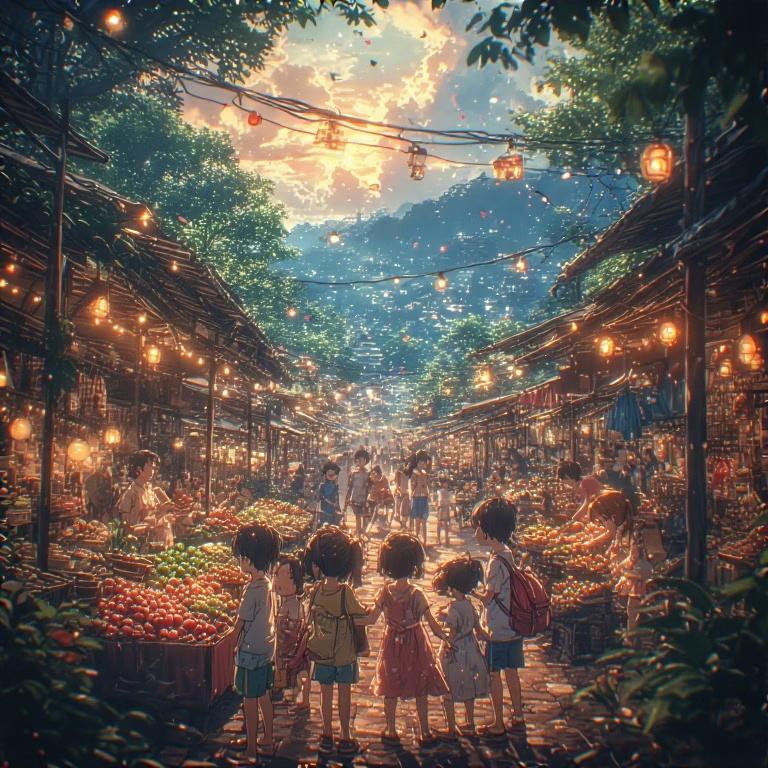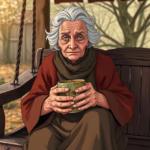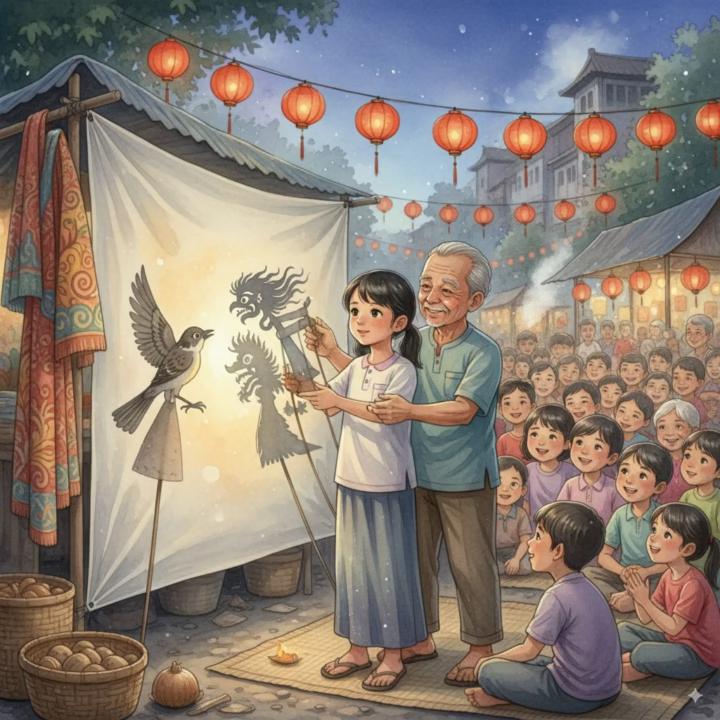
Kuala Lumpur, 1957. The air over Petaling Street hung thick with the scent of sizzling char kway teow, jasmine tea, and the damp earth after a sudden tropical downpour. Strings of red lanterns swayed gently above the narrow street, their glow flickering like fireflies as dusk settled over the city. It was the year Malaya would become independent, and the people buzzed with a new kind of energy—hope, like a song just beginning to be sung.
Twelve-year-old Bell crouched behind a stack of wooden crates near her family’s textile stall, her fingers tracing the edge of a small, worn leather case. Inside lay her most precious possession: a set of hand-carved shadow puppets made by her late Ah Gong—her grandfather. Each puppet was a silhouette of a warrior, a dancing girl, a tiger with bared fangs, all cut from thin buffalo hide and painted with delicate strokes of gold and red.
“Bell!” her mother called, folding a length of batik cloth. “Help me close up. It’s almost time for the curfew announcement.”
“I’ll be right there, Ma,” Bell whispered, though she didn’t move. Her eyes were fixed on the empty wall beside the neighboring mamak stall—a perfect screen, if only someone would use it.
For weeks, she’d watched the old man known as Pak Awang, the last shadow puppet master of Petaling Street, perform wayang kulit for small crowds of children and curious tourists. His stories of ancient kings, clever mice, and magic kris daggers brought the street to life. But tonight, there was no music. No voice. No flickering silhouettes dancing on the wall.
Pak Awang’s stall was dark.
Bell crept closer. The old man sat on a low stool, his face lined with sorrow. His hands, once steady and swift, now trembled over his broken dhalang rod—the stick that controlled the main puppet.
“Pak Awang?” she said softly.
He looked up, his eyes tired. “Ah, little Bell. Come to see the end of an old man’s art?”
“No,” she said firmly. “I came to see the beginning.”
He gave a dry chuckle. “The radio says the new world has no room for shadow stories. Everyone wants movies now. Lights. Noise. Not quiet tales told in silhouette.”
“But people still feel,” Bell said. “And your stories… they make them feel.”
She opened her leather case. “Ah Gong taught me. Not much. Just the basics. How to make the puppets speak with light and shadow. How to make the tiger roar without a sound.”
Pak Awang’s eyes widened. “You have his puppets?”
She nodded. “And his notes. He wrote everything down. He said the stories must not fade, even if the world changes.”
A silence passed between them, filled only by the distant chime of a bicycle bell and the hum of a generator starting up.
Then Pak Awang straightened. “Tomorrow night,” he said, “we perform together.”
Bell gasped. “But… the curfew? And what if no one comes?”
“Then we perform for the walls,” he said. “For the memory of those who once listened. For Ah Gong. And for the ones who will come after.”
The next evening, as the call to prayer echoed from the nearby mosque and the first stars blinked awake, something magical happened on Petaling Street.
A white sheet was stretched between two lampposts. A single kerosene lamp cast a warm, trembling light. And behind it stood two figures: an old man with steady hands once more, and a girl with fire in her eyes.
They called it “The Tale of the Brave Sparrow.”
A story about a tiny bird who challenged a storm to save her village. About courage not measured in size, but in heart. About change—how it can destroy, yes, but also how it can carry something precious forward, like a seed on the wind.
Children gathered, barefoot and wide-eyed. Shopkeepers paused their closing. Even a British officer on patrol stopped, hat in hand, watching the shadows leap and dance.
When the final puppet bowed and the light dimmed, the street erupted in applause.
Bell stepped forward, her cheeks flushed. “This story,” she said, “belongs to all of us. And so does the next one.”
Pak Awang smiled. “And the one after that. And the one after that.”
Weeks passed. Independence Day arrived with parades, flags, and cheers that rolled through the streets like thunder. The world was changing.
But every Friday night, without fail, the shadow puppets returned to Petaling Street.
And Bell, with her grandfather’s puppets and her own new ones carved from dreams, became known not just as a girl—but as the Keeper of Stories.
Because some things, no matter how much the world shifts, must never be forgotten.
Not the tales.
Not the shadows.
Not the light.
The End.
For every child who believes that even the smallest voice can cast a giant shadow.
